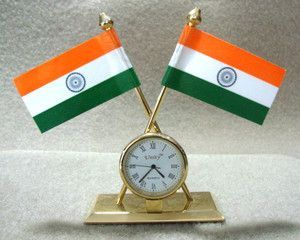As accurate as the new numbers might be, they are yet to inspire trust.
 Every few years, the process by which real economic activity is measured undergoes a change.
Every few years, the process by which real economic activity is measured undergoes a change.
This achieves two objectives.
One, it allows the latest developments in methods of measuring and assessing the activity levels in different sectors to be reflected in the estimates.
Two, it captures structural changes in the economy, giving due recognition to sectors that have grown rapidly or those which have shrunk.
Several previous changes in the base year for estimating the gross domestic product, or gross domestic product, have been done smoothly.
These changes did not result in significant differences in the aggregate estimates generated by series with different base years.
However, this time it was not so.
The change in base year from 2004-05 to 2011-12, which was first incorporated in the quarterly GDP data release on January 30, suggested that the economy grew significantly faster during the past two years than was earlier believed.
This was largely due to a significant upward revision of the estimated growth rate of the manufacturing sector.
Not surprisingly, this raised widespread concerns amongst analysts and, particularly, amongst policymakers.
The new numbers clearly had very different implications for gauging the appropriate macroeconomic policy stance than the old ones.
The question rang loud and clear: will the real economy please stand up?
The Central Statistics Office recently published a document in which it laid out the main changes that were made in the methodology used to arrive at the new series of estimates. It highlights the compliance of the methodology with recent upgrades in the System of National Accounts, a global protocol.
It also explains its use of a larger range of primary data sources, essentially different sector-specific surveys carried out by the National Sample Survey Office.
With reference to manufacturing, in particular, it indicates that the basis of the estimates of value added in the organised sector has changed from the earlier set of about 2,500 companies maintained by the Reserve Bank of India to the much larger database- about 500,000 companies -- now managed by the ministry of corporate affairs.
All the changes implemented for each major sector emerged from recommendations made by expert sub-committees.
In short, on the face of it, there seems little to quibble about either the process itself or the outcomes that emerged from it.
And yet there is controversy.
As many observers have pointed out, the new series appears to be inconsistent with traditional correlates of macroeconomic activity -- bank credit growth, tax revenues and corporate profitability.
The only explanation for this is that the new activity that has been captured, particularly in manufacturing, comes from segments that do not borrow from banks, do not pay taxes and are not covered by the existing radar screens of corporate performance.
In other words, an invisible stream of robust performance has now been brought to the surface.
This may be, but concerns about the foundations of the estimates for manufacturing have been expressed by one of the members of that particular sub-committee, Professor R Nagaraj of the Indira Gandhi Institute of Development Research.
In a nutshell, as accurate as the new numbers might be, they are yet to inspire trust.
This serves the national interest badly and calls for quick resolution and a re-establishment of trust in the GDP estimates.








